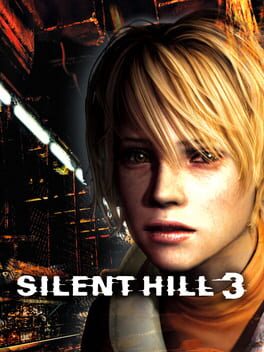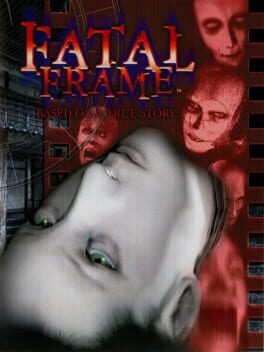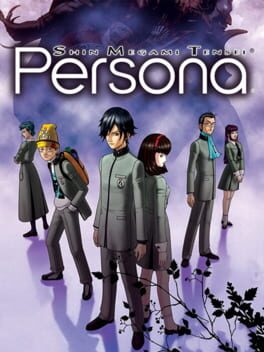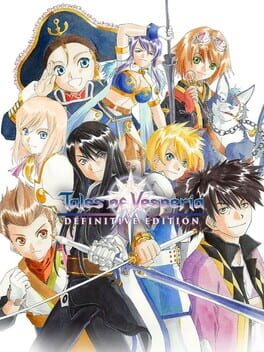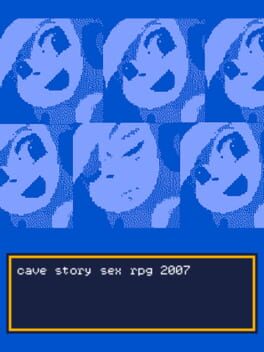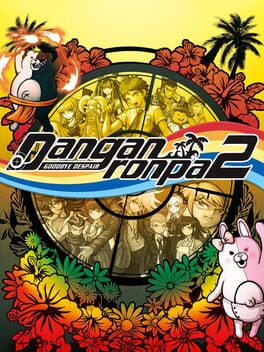peridotsfish
11 reviews liked by peridotsfish
Silent Hill 3
2003
was talking it over with a friend and we agreed that one of the smartest things this game does is to entirely elide questions of depiction and gratuitousness re: sexual assault and abuse by unfolding the violence almost entirely through threat, metaphor, and implication. the looming possibility is signalled by the very first interaction even, the encounter of our favorite skinny, vulnerable teenage girl Heather Mason with a bulking, growly strange man stalking her. the eventual unraveling of the "God" plotline obviously also scans as about sexual trauma, the violative experience of unwanted procreation without the explicit need for an assaulting figure (which of course ties into the parody of the Virgin Birth, again, not subtle but appreciated), and the central dynamic between Heather and men is defined by distrust, fear, and manipulation (the memo you read where even her benevolent father and blankfaced video game Good Dad Harry Mason confesses to wanting to murder Heather as a child is heartbreaking), while her relationship to the only other woman in the cast is defined by outright hostility engendered by their equally understandable if slightly manichean responses to unbelievable pain and suffering at the hands of a patriarchal and matriarchal figure, respectively. to really hammer it home the game pens you in to dark, cramped, filthy spaces right from the start, barely ever giving you an overworld to interact with: Heather Mason is not her father or James Sunderland, she's a 17 year old girl, railroaded through the terrifying world that the men of the series navigate more freely (this is also reflected in the games lack of traditional Silent Hill branching endings, at least on a first playthrough). maybe there's nothing interesting or new left to say about these games but i loved this so much i wanted to at least put something here to commemorate it
Fatal Frame
2001
Ass backwards as I like to go about these things, Fatal Frame II was my first introduction to the series, a delightful masterpiece of survival horror that piqued my interest to try its inception title this Halloween season. Having heard Fatal Frame being described as a tech demo for the PS2 over the years, I find that distinction a bit patronizing and unfair, considering how successfully the series hits it out of the park on its first try.
Fatal Frame is a testament to the aesthetic prowess and hoist Shintoism is capable of instilling in the horror genre, placing the player in an otherwordly creacky dilapidated mansion of suffocating folkloric symbolism and eerie culturally alien soundscapes drenched in darkness that elevate its humble Resident Evil-like fixed angle backtracking into one of the most oppressive and nerve-racking house of horrors that has you dreading getting past static kimono stands and samurai armor statues.
The highlight of Fatal Frame is of course its antagonistic force: the ghosts. Not just the crafsmanship put into their creepy and unsettling designs and the inherent capacity ghosts have to scare the shit out of us, but ultimately the concept of having to dispel them using a photo camera. Forcing the player to gaze straight into fear as it slowly glides towards them until the very last moment is one of the most ingenious design choices ever conceived in the genre that affirm videogames as the superior venue to explore horror, placing the responsibility of creating tension and scares on the one holding the controller.
Fatal Frame II is a refined revision of the concepts presented by its predecessor, improving upon the established core gameplay loop and retelling much of the same story, ideas and themes of ritualistic dogmas imposing on individualism in a more confident coat of paint that might make the first entry obsolete in the eyes of many. But as the foundation of the entire franchise, Fatal Frame is a singular cohesive haunting experience that doesn't overstay its welcome and utilizes the early stages of PS2 development to invoke one of the scariest games of all time.
Fatal Frame is a testament to the aesthetic prowess and hoist Shintoism is capable of instilling in the horror genre, placing the player in an otherwordly creacky dilapidated mansion of suffocating folkloric symbolism and eerie culturally alien soundscapes drenched in darkness that elevate its humble Resident Evil-like fixed angle backtracking into one of the most oppressive and nerve-racking house of horrors that has you dreading getting past static kimono stands and samurai armor statues.
The highlight of Fatal Frame is of course its antagonistic force: the ghosts. Not just the crafsmanship put into their creepy and unsettling designs and the inherent capacity ghosts have to scare the shit out of us, but ultimately the concept of having to dispel them using a photo camera. Forcing the player to gaze straight into fear as it slowly glides towards them until the very last moment is one of the most ingenious design choices ever conceived in the genre that affirm videogames as the superior venue to explore horror, placing the responsibility of creating tension and scares on the one holding the controller.
Fatal Frame II is a refined revision of the concepts presented by its predecessor, improving upon the established core gameplay loop and retelling much of the same story, ideas and themes of ritualistic dogmas imposing on individualism in a more confident coat of paint that might make the first entry obsolete in the eyes of many. But as the foundation of the entire franchise, Fatal Frame is a singular cohesive haunting experience that doesn't overstay its welcome and utilizes the early stages of PS2 development to invoke one of the scariest games of all time.
Final Fantasy X
2001
I've been putting this game off for years simply because I tend to feel like overwhelming praise can never quite match up to the actual experience, and well honestly I've never felt like more of an idiot.
If anyone's trying to tell you how great this game is, listen to their story.
Because they are absolutely correct.
If anyone's trying to tell you how great this game is, listen to their story.
Because they are absolutely correct.
Death Stranding
2019
I feel like this game would be a lot more well-regarded if they didn't screw with the soundtrack and destroy the atmosphere as a result.
One of the better Persona games writing-wise. Mechanically it exists. Forever hoping that one day another port with the original atmosphere and soundtrack is released.
One of the better Persona games writing-wise. Mechanically it exists. Forever hoping that one day another port with the original atmosphere and soundtrack is released.
This was my second Tales game (Tales of Berseria was my first) so it was kinda weird at first seeing how limited it was in terms of camera movement and the overworld but the charm of it eventually won me over. One of my biggest issues with ToB was how large a lot of it environments were which lead to the game feeling like it dragged on in areas, while with ToV the overworld in particular it was the perfect size to keep the pace going at a rate I enjoyed (though I did find myself getting lost more easily)
I've found with the Tales games that the gameplay isn't really that captivating, especially the real time battle system (it can be fun at first but for a JRPG the battles can start to drag after a while) but what really hooks you in with these games are the story and characters and my gosh did Vesperia hook me in
The story touched upon a lot of really interesting themes for me. Are the laws really punishing the worst people? Is it right to take the law into your hands? Are those at the top of class system only looking out for themselves? Could we give up a source of power that we've always relied on to save our world? So much of Vesperia's story was really interesting and I loved how they used the main party to explore some of the conflicts that can happen from these ideals. Yuri and Flynn, Judith and Rita in particular have really interesting clashes because of their ideals and it makes for a really good group dynamic.
Speaking of the characters my gosh they are so good. While I think Velvet from Berseria is the stronger protagonist, Yuri has a lot of really great moments that help his character shine. Judith came in and shook things up and I love the way she pushes Estelle to make up her mind on things. Rita was fantastic with her sarcastic attitude but also her dynamic with Estelle was so good. Ripede was a million times better than Bienfu. Karol was a really solid younger member of the group that really tied in the guilds well. Flynn was an excellent foil to Yuri. I can't really go into a lot of Raven's stuff without spoilers but I did enjoy the party calling him old man all the time and Patty.... well Patty had her moments but it was off putting having Yuri switch VA around her because Bandai Namco couldn't be bothered asking Troy Baker to come back to record new lines.
Finally there's Estelle who is easily my favourite character in the whole game. While she might be a princess, I found a lot her character to be really relatable. She has her wants and desires but tends to put herself behind others. The amount of times where it feels like she's just following the group decision because she feels like putting her opinion in can be a burden (I really love that Judith comes in and is immediately like "What do you want to do?" and Estelle is like.... i... i... dunno because she's so self conscious aaaaaaaaaaaaaa) I also love how when she's made her mind up on something it's near impossible to break her from it and her instinct to help others is so good. I love that the game tests her on that instinct with what I will call the "Estelle depression arc" that takes place in the game's second arc. Seriously, if you love Estelle as a character a lot of that second arc is gonna hit you hard, like I struggled through some of that my gosh.
I need to mention the ending. The majority of the game is so good and then the ending has to be one of the most anticlimactic and flat endings I've ever experienced. It doesn't ruin the game but it does leave with a big "is that it?" and that is the biggest mark against the game I have.
Overall, while I think Tales of Berseria has the higher highs with it's cast and story, I ended up enjoying Tales of Vesperia more due it's better pacing and that I ended up enjoying Estelle's character in particular a lot.
One last thing...... Ristelle is life
I've found with the Tales games that the gameplay isn't really that captivating, especially the real time battle system (it can be fun at first but for a JRPG the battles can start to drag after a while) but what really hooks you in with these games are the story and characters and my gosh did Vesperia hook me in
The story touched upon a lot of really interesting themes for me. Are the laws really punishing the worst people? Is it right to take the law into your hands? Are those at the top of class system only looking out for themselves? Could we give up a source of power that we've always relied on to save our world? So much of Vesperia's story was really interesting and I loved how they used the main party to explore some of the conflicts that can happen from these ideals. Yuri and Flynn, Judith and Rita in particular have really interesting clashes because of their ideals and it makes for a really good group dynamic.
Speaking of the characters my gosh they are so good. While I think Velvet from Berseria is the stronger protagonist, Yuri has a lot of really great moments that help his character shine. Judith came in and shook things up and I love the way she pushes Estelle to make up her mind on things. Rita was fantastic with her sarcastic attitude but also her dynamic with Estelle was so good. Ripede was a million times better than Bienfu. Karol was a really solid younger member of the group that really tied in the guilds well. Flynn was an excellent foil to Yuri. I can't really go into a lot of Raven's stuff without spoilers but I did enjoy the party calling him old man all the time and Patty.... well Patty had her moments but it was off putting having Yuri switch VA around her because Bandai Namco couldn't be bothered asking Troy Baker to come back to record new lines.
Finally there's Estelle who is easily my favourite character in the whole game. While she might be a princess, I found a lot her character to be really relatable. She has her wants and desires but tends to put herself behind others. The amount of times where it feels like she's just following the group decision because she feels like putting her opinion in can be a burden (I really love that Judith comes in and is immediately like "What do you want to do?" and Estelle is like.... i... i... dunno because she's so self conscious aaaaaaaaaaaaaa) I also love how when she's made her mind up on something it's near impossible to break her from it and her instinct to help others is so good. I love that the game tests her on that instinct with what I will call the "Estelle depression arc" that takes place in the game's second arc. Seriously, if you love Estelle as a character a lot of that second arc is gonna hit you hard, like I struggled through some of that my gosh.
I need to mention the ending. The majority of the game is so good and then the ending has to be one of the most anticlimactic and flat endings I've ever experienced. It doesn't ruin the game but it does leave with a big "is that it?" and that is the biggest mark against the game I have.
Overall, while I think Tales of Berseria has the higher highs with it's cast and story, I ended up enjoying Tales of Vesperia more due it's better pacing and that I ended up enjoying Estelle's character in particular a lot.
One last thing...... Ristelle is life
reflections on the idealized past and the horrifyingly mundane present viewed through the innocent lens of childhood nostalgia and the very concept of "formative media," which is a topic i think about quite often and allude to frequently on my backloggd reviews
as somebody who spent a lot of time playing cave story on my wii as a kid the particular use of that "genre" of "i played this as a kid" that a lot of games seem to fall into (like earthbound, kingdom hearts and cave story) resonated with me in a way i have issues putting words to. "we really liked cave story, huh?" evocative of passions and that childhood sense of wonder slowly being forgotten with adulthood until you kind of forget you were ever once that capable of being genuinely wholly excited about things in that specific way, or at least being honest with yourself about it
and the "cave story sex rpg" thing in and of itself reminds me of that era of newgrounds flash hentai parody games which i myself associate with that period of youthful naivety and the Unknown and the forbidden, kind of a naive and innocent period in the internet and online media as we know it too, but maybe that's just me with my brain having been warped in a weird way by accidentally finding flash porn when i was Way Too Young
it took me longer to think about and write this review than it did to play the game which is saying something. i don't know what exactly but it's saying something. it's not a particularly evocative or transformative experience but for what it is it sure did give me a lot to think about and reflect on and i think it achieves what it sets out to do. it's not for everybody
as somebody who spent a lot of time playing cave story on my wii as a kid the particular use of that "genre" of "i played this as a kid" that a lot of games seem to fall into (like earthbound, kingdom hearts and cave story) resonated with me in a way i have issues putting words to. "we really liked cave story, huh?" evocative of passions and that childhood sense of wonder slowly being forgotten with adulthood until you kind of forget you were ever once that capable of being genuinely wholly excited about things in that specific way, or at least being honest with yourself about it
and the "cave story sex rpg" thing in and of itself reminds me of that era of newgrounds flash hentai parody games which i myself associate with that period of youthful naivety and the Unknown and the forbidden, kind of a naive and innocent period in the internet and online media as we know it too, but maybe that's just me with my brain having been warped in a weird way by accidentally finding flash porn when i was Way Too Young
it took me longer to think about and write this review than it did to play the game which is saying something. i don't know what exactly but it's saying something. it's not a particularly evocative or transformative experience but for what it is it sure did give me a lot to think about and reflect on and i think it achieves what it sets out to do. it's not for everybody
Journey
2012
Improves upon the first game in nearly aspect with an absolutely incredible finale
The biggest negative I have with the game is the couple of objectification shots of Mikan for no real reason. After the first trial though, this is thankfully not done again
The trials here are lot more unpredictable compared to the first game with old minigames expanded upon and new ones added to the mix (logic dive is the best, I love it!!!!!)
I found the overall cast here to be more enjoyable than the first, with characters I wasn't too fond off at the beginning growing on me as I progressed. Definitely gonna miss Gundham and his FOUR DARK DEVAS OF DESTRUCTION now that I've beaten the game.
But yeah, this was an incredible experience and one I am really glad I took the opportunity to judge for myself
The biggest negative I have with the game is the couple of objectification shots of Mikan for no real reason. After the first trial though, this is thankfully not done again
The trials here are lot more unpredictable compared to the first game with old minigames expanded upon and new ones added to the mix (logic dive is the best, I love it!!!!!)
I found the overall cast here to be more enjoyable than the first, with characters I wasn't too fond off at the beginning growing on me as I progressed. Definitely gonna miss Gundham and his FOUR DARK DEVAS OF DESTRUCTION now that I've beaten the game.
But yeah, this was an incredible experience and one I am really glad I took the opportunity to judge for myself
This game came very, very close to being my favorite game of all time, but in the end it didn't hit the mark the way that a lot of my favorites did. This isn't a bad thing; NieR expresses all of its ideas in as coherent and fluid a manner as it can and I think it really hammers home everything that it needs to with the tools that it has. It just didn't tell me anything I didn't already know - and that’s a good thing. I cherish NieR as much as I do for the exact reason that it reminds me so much of what I have, what I know and how I've grown.
NieR is a celebration of video games as a medium; it picks them apart, critiques them, and gets to know them inside-and-out for all their weird quirks and then pieces them back together, the relationship between creator and creation much stronger for all the bizarre intimacy and trust that can only come when you've exhausted every little detail of something you know and love so well. In many ways, NieR is the definitive game of the state of games in 2010: a look back at the achievements of games' past (with countless homages to games such as Resident Evil or the original Legend of Zelda with gameplay mix-ups and perspective changes), while taking a few brave first steps into the increasingly unique and experimental narrative language games had started to develop going into their fourth decade of mainstream prevalence.
There’s also something to be said about NieR’s LGBT themes and the manner in which it explores them and works them into its core narrative; every single member of the main party has some sort of LGBT experience related to their story. Rather than dedicating entire subplots to extrapolating upon these themes, it lets the player identify these characters as gay/intersex/bisexual and then places them in circumstances where one can identify strong parallels with LGBT experiences in a very real way without having to carve out room in the story just for those. It feels natural, and it’s the best way I’ve seen a game tackle LGBT themes - a scene where two “non-human” characters reassure one another over their “flaws” becomes a textual example of LGBT solidarity in the narrative, whereas one character’s discomfort and feeling unsafe being half-shade in a party of shade-hunters becomes a parallel to the fears that intersex and transgender feel in cisgender society. I’ve never seen another narrative handle it so subtly and yet so explicitly as Nier does, and I cherish it endlessly.
The fact that NieR has two protagonists is one of the best possible decisions that could have been made for this game. Perception, perspective and understanding is an important theme in this game, and a lot of the writing is written in a way that will resonate differently depending on whether or not the protagonist is a young man protecting his sister or a middle-aged man protecting his daughter. Brother Nier’s story is one of the best intentions and purest love slowly rotting into the most volatile hate, whereas Papa Nier’s story is one of how even the most innocent and noble of love can draw you to do terrible, awful things. Both protagonists have unique and incredibly impactful effects on the world around them, and are impacted by it in different ways, and have equally meaningful and unique relationships with their party members.
I personally prefer Brother Nier - he resonates with me on a much greater level and I find his more dynamic character arc more compelling, and I’m a sucker for understated, subtle romances such as the one between Brother Nier and Kainé, which is amplified considering the backstory context (and resulting LGBT status) that Brother Nier has whereas Papa Nier does not have it. At the same time, I cannot imagine NieR without Papa Nier. I found myself missing him even when he was right there in the playthrough of NieR: Gestalt I watched while playing through Replicant.
Some criticize the new ending in the remake as unfitting or that it ruins the original game’s point. I understand where they’re coming from in saying so, but I disagree - I think to emphasize NieR as a purely cynical and centering its darkness above all else is to miss the point. NieR is a story about love, and what people are willing to do for the people that they love. Some loyalties are unbreakable and will lead people to do unthinkable things - such as “undo” a poignant and controversial ending that many people consider the highlight of the narrative in which they are held. (Personally, I find Ending D to be a bit overrated - the twist ending comes as a bit shoehorned in and doesn’t have much narrative weight or presence, without ever explaining how Nier can do what he does to achieve that ending).
The only true complaint I have is that I feel that it’s a touch too short and relies too heavily on padding through (ultimately meaningless, if not entertaining) sidequests, and that its truly emotionally impactful moments are more-or-less hastily crammed into a game whose routes you could beat in ten hours or less if you rushed through it (it took me about eighty hours to achieve all five endings, with this in mind). I understand the importance of the game’s replay value and that it’s what makes the game so special, but at the same time I feel like I would have definitely been willing to rack up 100 hours or more in exchange for longer playthroughs so that I could see the party interact more. The four-man ensemble of Nier, Kainé, Emil and Grimoire Weiss is my favorite in any video game, and it feels like we’re made to say goodbye to them just as we’ve truly gotten to know them.
But — and this is a key theme of NieR in and of itself — perhaps it is more important to appreciate the journey itself, for often it won't end the way you expect, or even in the manner that you want it to. Sometimes you're happier on the path to your goals than you are when you achieve them. Love your friends while you still can, cherish every step you take for what it is, and don’t look back.
NieR is a celebration of video games as a medium; it picks them apart, critiques them, and gets to know them inside-and-out for all their weird quirks and then pieces them back together, the relationship between creator and creation much stronger for all the bizarre intimacy and trust that can only come when you've exhausted every little detail of something you know and love so well. In many ways, NieR is the definitive game of the state of games in 2010: a look back at the achievements of games' past (with countless homages to games such as Resident Evil or the original Legend of Zelda with gameplay mix-ups and perspective changes), while taking a few brave first steps into the increasingly unique and experimental narrative language games had started to develop going into their fourth decade of mainstream prevalence.
There’s also something to be said about NieR’s LGBT themes and the manner in which it explores them and works them into its core narrative; every single member of the main party has some sort of LGBT experience related to their story. Rather than dedicating entire subplots to extrapolating upon these themes, it lets the player identify these characters as gay/intersex/bisexual and then places them in circumstances where one can identify strong parallels with LGBT experiences in a very real way without having to carve out room in the story just for those. It feels natural, and it’s the best way I’ve seen a game tackle LGBT themes - a scene where two “non-human” characters reassure one another over their “flaws” becomes a textual example of LGBT solidarity in the narrative, whereas one character’s discomfort and feeling unsafe being half-shade in a party of shade-hunters becomes a parallel to the fears that intersex and transgender feel in cisgender society. I’ve never seen another narrative handle it so subtly and yet so explicitly as Nier does, and I cherish it endlessly.
The fact that NieR has two protagonists is one of the best possible decisions that could have been made for this game. Perception, perspective and understanding is an important theme in this game, and a lot of the writing is written in a way that will resonate differently depending on whether or not the protagonist is a young man protecting his sister or a middle-aged man protecting his daughter. Brother Nier’s story is one of the best intentions and purest love slowly rotting into the most volatile hate, whereas Papa Nier’s story is one of how even the most innocent and noble of love can draw you to do terrible, awful things. Both protagonists have unique and incredibly impactful effects on the world around them, and are impacted by it in different ways, and have equally meaningful and unique relationships with their party members.
I personally prefer Brother Nier - he resonates with me on a much greater level and I find his more dynamic character arc more compelling, and I’m a sucker for understated, subtle romances such as the one between Brother Nier and Kainé, which is amplified considering the backstory context (and resulting LGBT status) that Brother Nier has whereas Papa Nier does not have it. At the same time, I cannot imagine NieR without Papa Nier. I found myself missing him even when he was right there in the playthrough of NieR: Gestalt I watched while playing through Replicant.
Some criticize the new ending in the remake as unfitting or that it ruins the original game’s point. I understand where they’re coming from in saying so, but I disagree - I think to emphasize NieR as a purely cynical and centering its darkness above all else is to miss the point. NieR is a story about love, and what people are willing to do for the people that they love. Some loyalties are unbreakable and will lead people to do unthinkable things - such as “undo” a poignant and controversial ending that many people consider the highlight of the narrative in which they are held. (Personally, I find Ending D to be a bit overrated - the twist ending comes as a bit shoehorned in and doesn’t have much narrative weight or presence, without ever explaining how Nier can do what he does to achieve that ending).
The only true complaint I have is that I feel that it’s a touch too short and relies too heavily on padding through (ultimately meaningless, if not entertaining) sidequests, and that its truly emotionally impactful moments are more-or-less hastily crammed into a game whose routes you could beat in ten hours or less if you rushed through it (it took me about eighty hours to achieve all five endings, with this in mind). I understand the importance of the game’s replay value and that it’s what makes the game so special, but at the same time I feel like I would have definitely been willing to rack up 100 hours or more in exchange for longer playthroughs so that I could see the party interact more. The four-man ensemble of Nier, Kainé, Emil and Grimoire Weiss is my favorite in any video game, and it feels like we’re made to say goodbye to them just as we’ve truly gotten to know them.
But — and this is a key theme of NieR in and of itself — perhaps it is more important to appreciate the journey itself, for often it won't end the way you expect, or even in the manner that you want it to. Sometimes you're happier on the path to your goals than you are when you achieve them. Love your friends while you still can, cherish every step you take for what it is, and don’t look back.
